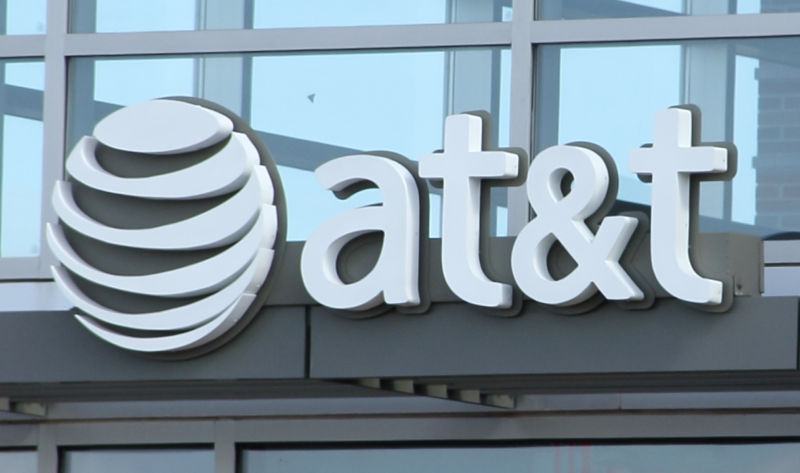
AT&T's years-long quest to avoid punishment for throttling unlimited data plans suffered a blow today when a court said that AT&T cannot escape the jurisdiction of the Federal Trade Commission.
The FTC sued AT&T in October 2014 in US District Court in Northern California, alleging that AT&T promised unlimited data to wireless customers and then throttled its speeds by as much as 90 percent. To escape punishment, AT&T claimed that the FTC has no jurisdiction over the company because the FTC is barred from regulating common carriers.
There have now been three court decisions on AT&T's claim. But the latest and most important decision was released today and sided with the FTC. US law does prevent the FTC from regulating common carriers, but the immunity from FTC regulation applies "only to the extent that a common carrier was engaging in common-carrier services," according to today's ruling from an en banc session of the US Court of Appeals for the 9th Circuit.
Impact on lawsuit and FTC authority
The decision has two major consequences. First, the FTC's lawsuit against AT&T can proceed, potentially allowing the FTC to get refunds for AT&T customers whose mobile Internet plans were throttled.
Second, the decision affirms the FTC's authority to regulate broadband providers even when those providers offer separate common carrier services, such as landline or mobile phone service.
The Federal Communications Commission's repeal of net neutrality rules was premised partially on the idea that the FTC would pick up the regulatory slack on net neutrality. But AT&T's attempt to cripple the FTC's regulatory authority put the FCC's argument on shaky ground until today's ruling.
FCC Chairman Ajit Pai applauded the court ruling.
The decision "reaffirms that the Federal Trade Commission will once again be able to police Internet service providers after the Restoring Internet Freedom Order takes effect," Pai said in a statement issued today. "In the months and years ahead, we look forward to working closely with the FTC to ensure the protection of a free and open Internet."
Still, the FTC doesn't have any specific net neutrality rules, so it can only punish ISPs if they make net neutrality promises and then break them.
Home and mobile Internet providers were classified as common carriers by the FCC starting in 2015. The Pai FCC's net neutrality reversal in December 2017 deregulated Internet providers by declaring that broadband will no longer be treated as a common carrier service.
Mobile Internet was not a common carrier service when the FTC sued AT&T in 2014 and will return to its non-common carrier status once the net neutrality repeal takes effect. The FTC's lawsuit against AT&T could have gone forward regardless of whether ISPs remain common carriers, because the lawsuit covers the period before the 2015 reclassification, judges wrote today.
"The Reclassification Order was issued on March 12, 2015—five months after the FTC filed its suit against AT&T—and unambiguously states that the order will 'apply only on a prospective basis,'" judges said in today's order. "AT&T’s data-throttling program spanned from at least 2011 until the time that the FTC filed its complaint in 2014, well before the Reclassification Order became effective."
Deceptive marketing, slow speeds
The FTC's lawsuit alleged that AT&T deceived customers by offering unlimited data plans and then throttling speeds once customers hit certain usage thresholds, such as 3GB or 5GB in a month. At the time, AT&T customers who passed those thresholds were throttled 24 hours a day until the end of the monthly billing period.
AT&T finally eased up on throttling of unlimited LTE plans in 2015. Nowadays, AT&T customers can be throttled after using 22GB in a month but only during periods of "network congestion."
Today's court decision "does not address the merits of the case," AT&T told Ars. "We are reviewing the opinion and continue to believe we ultimately will prevail."
In April 2015, a US District Court judge rejected AT&T's claim that the FTC has no jurisdiction over the company. But a three-judge panel from the Ninth Circuit sided with AT&T on the jurisdiction question in August 2016.
In May 2017, Ninth Circuit judges announced that the case would be reheard in front of the entire court in an en banc hearing. That led to today's decision, which upheld the District Court ruling against AT&T.
"The question is whether the common-carrier exemption is activity-based, meaning that a common carrier is exempt from FTC jurisdiction only with respect to its common-carrier activities, or status-based, such that an entity engaged in common-carrier activities is entirely exempt from FTC jurisdiction," today's opinion said.
Judges decided that the exemption is activity-based after examining "the FTC Act's text, the meaning of 'common carrier' according to the courts around the time the statute was passed in 1914, decades of judicial interpretation, the expertise of the FTC and FCC, and legislative history," the ruling said.
It's also just common sense, judges continued:
This statutory interpretation also accords with common sense. The FTC is the leading federal consumer protection agency and, for many decades, has been the chief federal agency on privacy policy and enforcement. Permitting the FTC to oversee unfair and deceptive non-common-carriage practices of telecommunications companies has practical ramifications. New technologies have spawned new regulatory challenges. A phone company is no longer just a phone company. The transformation of information services and the ubiquity of digital technology mean that telecommunications operators have expanded into website operation, video distribution, news and entertainment production, interactive entertainment services and devices, home security, and more. Reaffirming FTC jurisdiction over activities that fall outside of common-carrier services avoids regulatory gaps and provides consistency and predictability in regulatory enforcement.
FTC Acting Chairman Maureen Ohlhausen said today's court decision is "good news for consumers."
"It ensures that the FTC can and will continue to play its vital role in safeguarding consumer interests including privacy protection, as well as stopping anticompetitive market behavior," she said.
The FTC will proceed with its lawsuit against AT&T, an FTC spokesperson told Ars.
reader comments
120